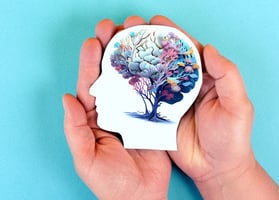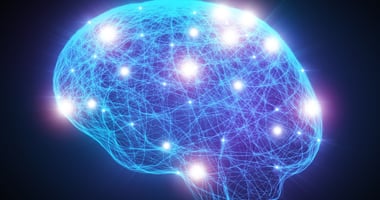Trigeminal Nerve Stimulation May Be Effective for Children With ADHD
 |
James J. McGough, M.D., of the Semal Institute for Neuroscience and Human Behavior and the David Geffen School of Medicine at UCLA, and colleagues compared active treatment with TNS to sham (fake) treatment in 56 children aged 8 to 12 years. The sham devices were identical in appearance to real ones but did not deliver active treatment. The children received 8 hours of active of sham TNS every night for four weeks.
The researchers used the ADHD Rating Scale (ADHD-RS) and the Clinical Global Impression-Improvement Scale (CGI-I), two common assessments for symptoms of ADHD, to track the children’s response to their assigned devices. They also measured activity in the children’s brains with electroencephalography (EEG) before the study began and at study’s end.
Children in both groups showed improvement during the first week. Improvement leveled off in the sham treatment group after that, but continued in the active TNS group through the fourth week, although at a slower pace.
“ADHD-RS response patterns suggest that the greatest degree of TNS-related improvement occurred during the first week, with additional improvement accruing with ongoing use. The week 4 medium-sized treatment effect is within the same range typically evidenced with nonstimulant ADHD medications,” the researchers wrote. “Weekly CGI-I ratings further indicate that response rates increase with sustained treatment, at least over four weeks.”
The researchers also saw positive changes in brain activity in the active treatment group’s EEG readings, a finding that the researchers said supports that TNS was responsible for the children’s improvement.
“The virtual lack of significant side effects should make [TNS] a popular treatment choice for many patients with ADHD, particularly for parents who prefer to avoid psychotropic medication,” the researchers concluded.
(Image: KatarzynaBialasiewicz/istock.com)






